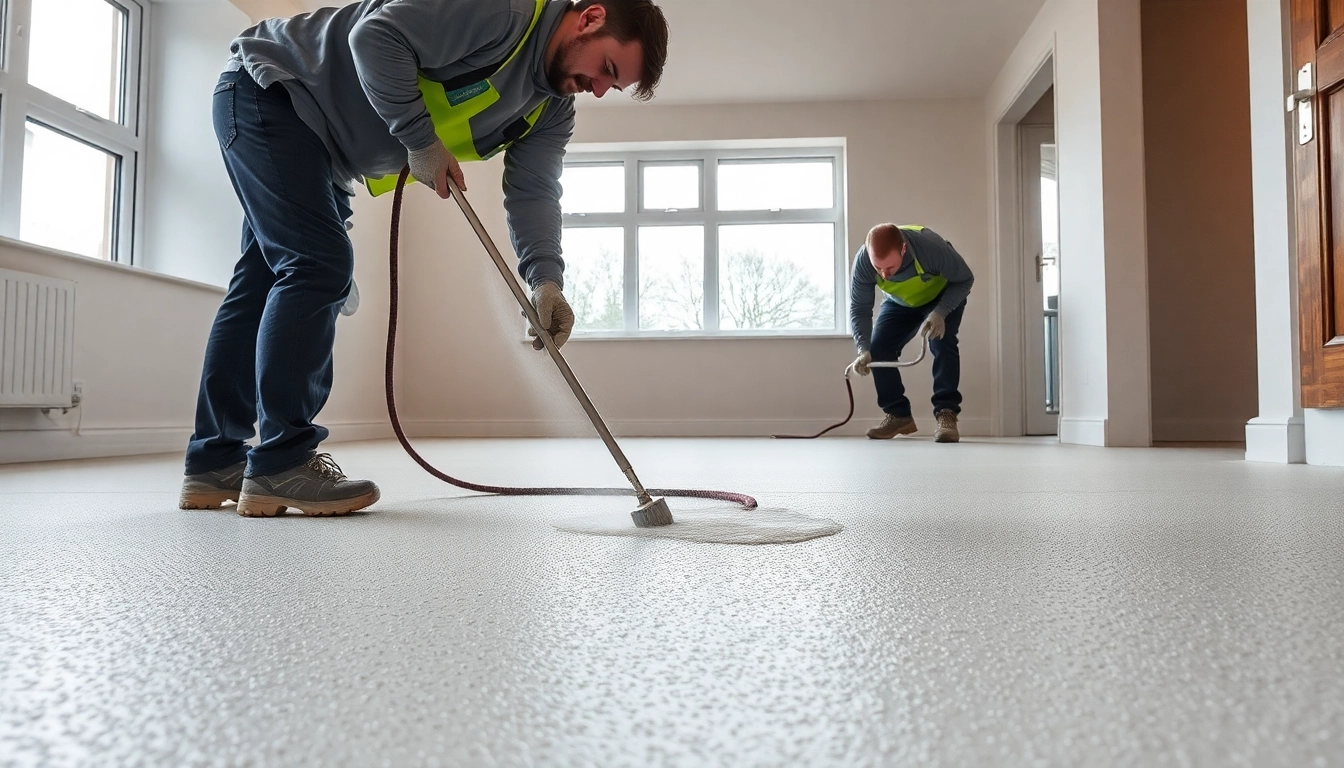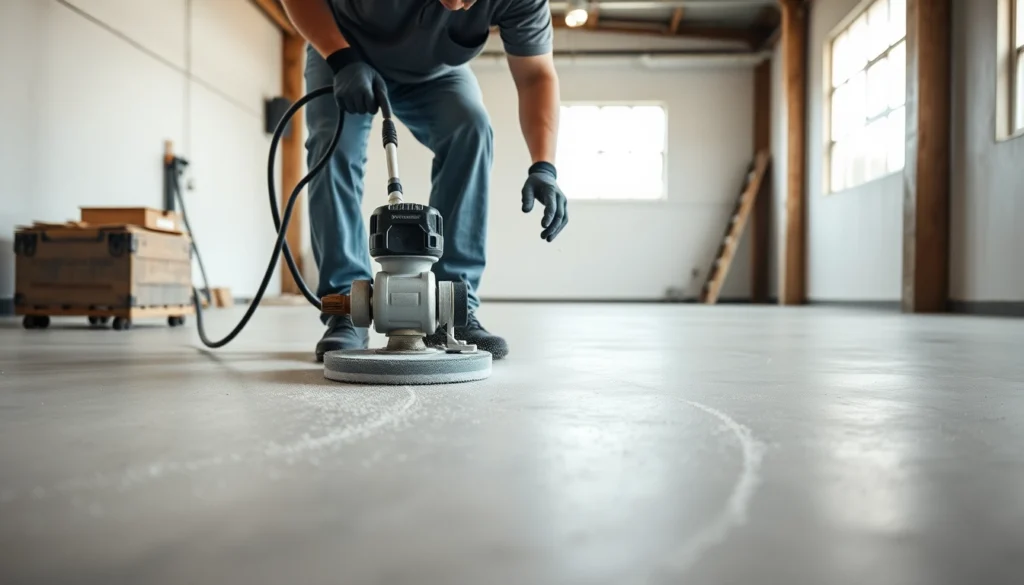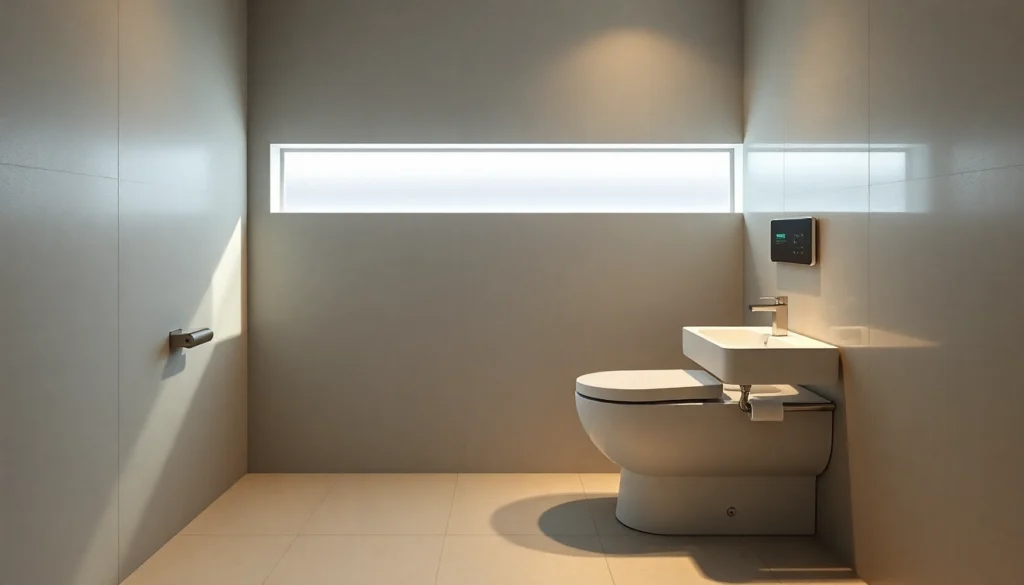Understanding Liquid Screeding and Its Benefits in Birmingham
In the realm of modern construction and refurbishment, achieving a perfectly level, durable, and quickly installed flooring surface is a top priority for both residential and commercial projects. One increasingly popular solution in Birmingham and across the UK is Liquid screeding Birmingham. This innovative flooring technique offers numerous advantages over traditional methods, making it a go-to choice for builders, architects, and property owners aiming for efficiency, performance, and longevity. This comprehensive guide explores what liquid screeding entails, its benefits specific to Birmingham properties, and how it can transform your flooring project from start to finish.
What is Liquid Screeding and How Does It Work?
Liquid screeding is a specialized floor finishing process that involves pouring a free-flowing, self-leveling cementitious mixture over a prepared subfloor. Unlike traditional sand and cement screeds that require manual spreading, liquid screeds are pumped onto the floor, offering a seamless, smooth surface with minimal manual labor. The formulation typically includes sand, cement, water, and sometimes plasticizers or other admixtures to enhance workability and performance.
The key to its efficiency lies in its pumpability and self-leveling characteristics. Once poured, the liquid screed flows into all nooks, crannies, and intricate details of the subfloor, settling evenly without the need for extensive trowelling or compaction. This rapid, uniform spread ensures minimal waste and reduces installation time significantly.
In Birmingham, where high-quality flooring standards are critical for both commercial spaces and luxurious homes, liquid screed’s ability to coat underfloor heating pipes, reduce drying times, and produce flat surfaces makes it a preferred choice. For more information on local providers, visit Liquid screeding Birmingham.
Advantages of Liquid Screeding for Birmingham Properties
- Speed of Installation: Liquid screeds cure faster than traditional screeds, enabling quicker project turnaround times — a vital benefit given Birmingham’s busy construction scene.
- Enhanced Heat Transfer: When combined with underfloor heating systems, liquid screed maximizes heat transfer efficiency due to its excellent thermal conductivity, saving energy and reducing heating costs.
- High-Quality Finish: Its self-leveling nature produces a perfectly flat surface, reducing the need for additional smoothing or finishing work. This results in a more precise, high-quality floor.
- Versatility: Suitable for various substrates, including concrete, wooden floors, and existing flooring, making it adaptable for renovation projects across Birmingham’s diverse properties.
- Reduced Wastage and Minimal Disruption: Pumped precisely to required depths, liquid screed minimizes material waste and shortens installation time, leading to reduced disruption on busy sites.
- Durability and Longevity: Properly installed liquid screeds offer long-lasting performance, resisting cracking and deformation, essential for Birmingham’s demanding environments.
Common Challenges Addressed by Modern Floor Screeding
Conventional floor screeding faces several limitations such as lengthy drying times, uneven surfaces, and difficulty accommodating underfloor heating systems. Modern liquid screeding mitigates these issues by offering rapid curing, high precision, and excellent thermal contact with embedded heating pipes.
Additionally, it addresses common challenges like cracking, uneven settling, and excessive labour costs associated with traditional methods. For Birmingham property developers dealing with tight schedules and high standards, these solutions enable on-time project delivery with superior results.
Choosing the Right Liquid Screeding Service in Birmingham
Key Factors to Consider When Selecting a Provider
Choosing a skilled and reputable liquid screeding contractor is essential to ensure quality. Key considerations include:
- Experience and Certification: Verify that the company has extensive experience in Birmingham projects and holds relevant certifications or accreditations.
- Portfolio and References: Review past work, ask for references, and visit previous sites if possible to assess quality standards.
- Product Quality: Use of high-grade materials and adherence to industry standards guarantee durability and performance.
- Turnaround Time and Flexibility: Confirm their ability to complete projects within your timeline.
- Compliance and Safety: Ensure all work complies with local building regulations and safety standards.
Questions to Ask Your Screeding Contractor
Effective communication facilitates successful projects. Consider asking:
- What experience do you have with Birmingham-based projects?
- Can you provide references or case studies?
- What is your typical curing and drying time?
- How do you handle complex underfloor heating installations?
- What guarantees or warranties do you offer on your work?
How to Assess Skill and Experience in Birmingham-based Installers
Assessing local expertise involves checking credentials, seeking local client testimonials, and reviewing their knowledge of Birmingham’s specific building codes and thermal standards. An installer familiar with the region’s climate and construction styles will ensure better integration and durability of the screed.
Step-by-Step Process of Liquid Screeding Installation
Initial Site Preparation and Planning
Preparation begins with thorough cleaning and leveling of the subfloor, ensuring it is free of debris, dust, or loose materials. Any existing cracks or defects should be addressed to prevent future problems. Proper planning involves measuring and marking out the required screed depth, particularly around corners and edges, and ensuring adequate access for pumping equipment.
Application Techniques for Optimal Results
The process involves mixing the liquid screed to precise specifications, then pumping it evenly across the surface using specialized equipment. Skilled operators control the flow, ensuring a uniform thickness throughout. During application, the screed self-levels, filling all voids and creating a smooth surface. After pouring, finishing techniques such as gentle trowelling may be applied to enhance surface smoothness, especially for areas requiring high-precision floors.
Post-Installation Care and Best Practices
Allow the screed to cure under controlled conditions. Protect it from rapid drying, temperature fluctuations, or foot traffic for recommended periods. Use curing compounds if necessary, and conduct moisture testing before laying final floor finishes. Proper curing ensures optimal strength, minimizes cracking risk, and guarantees an even, durable surface.
Performance and Maintenance of Liquid Screed Floors
Signs of Successful Installation
- Uniform flatness and smoothness
- Absence of cracks or deformations
- Efficient heat transfer if underfloor heating is installed
- No excessive moisture or dampness in the surface
Maintenance Tips for Longevity and Performance
Routine cleaning with suitable floor-maintenance products, avoiding abrasive materials, and monitoring for cracks or unevenness can extend the lifespan of liquid screed floors. If underfloor heating is active, regular system checks ensure optimal thermal performance.
When to Seek Repairs or Replacements
Cracks, unevenness, or significant moisture issues may indicate underlying problems requiring professional assessment. Timely repairs prevent further damage and maintain the integrity of the flooring system.
Comparing Liquid Screeding with Traditional Floor Finishes
Cost, Speed, and Efficiency Benefits
Although initial costs may be higher, liquid screed’s rapid installation, faster drying times, and reduced labor expenditure often result in lower overall project costs. Its ability to quickly accommodate finishing layers expedites project completion, crucial in busy Birmingham construction schedules.
Environmental Impact and Sustainability
Modern liquid screeds typically use eco-friendly admixtures, and their efficient application reduces material waste. Additionally, enhanced thermal efficiency contributes to energy savings over the lifespan of the building.
Case Studies of Successful Installations in Birmingham
Numerous Birmingham projects have utilized liquid screeding to achieve fast, reliable floors for both residential complexes and commercial developments. For example, a recent mixed-use development in Birmingham employed liquid screed beneath underfloor heating, resulting in a 30% reduction in installation time compared to traditional methods while achieving superior thermal performance.



